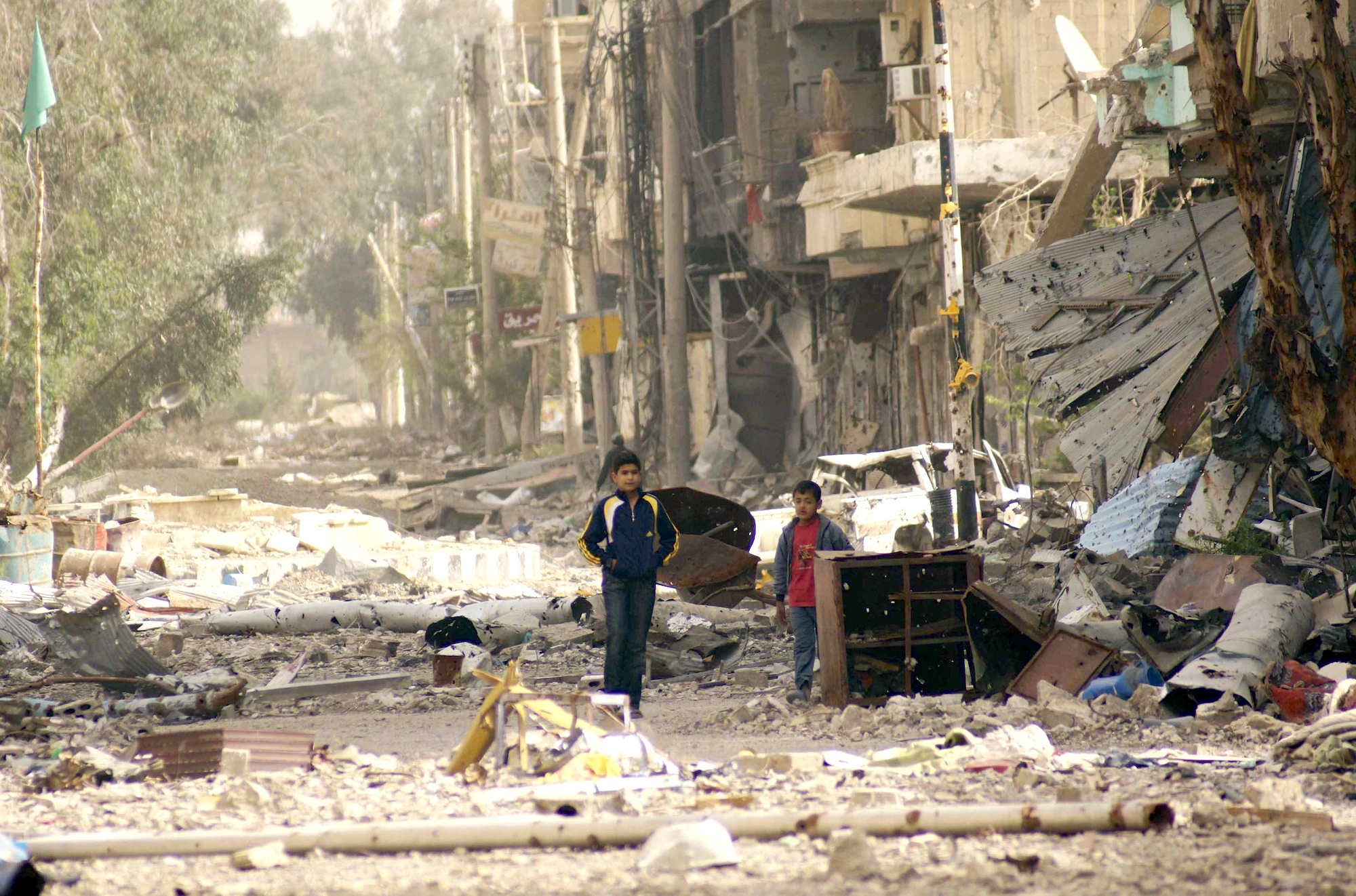U.S., Russia Wrangle Over Aleppo as Bombs Threaten Deeper Rift

EghtesadOnline: The U.S. and Russia are due to start talks with Middle Eastern powers over the war in Syria in a bid to row back from a diplomatic collision over the siege of Aleppo in a standoff that has brought ties between the Cold War adversaries to a new low.
With officials from Saudi Arabia, Qatar, Iran and Turkey also expected to attend, U.S. Secretary of State John Kerry is to meet Russian Foreign Minister Sergei Lavrov in the Swiss lakeside city of Lausanne Saturday, aiming to restore a truce to deliver aid supplies to Aleppo and other besieged areas. Lavrov said a day ahead of the meeting that Russia is seeking “concrete work,” although he didn’t outline any specific goals, reports Bloomberg.
A potential agreement may be elusive. Russia has said Syria is willing to examine a United Nations proposal for safe passage out of opposition-held eastern Aleppo for al-Qaeda fighters who are intermingled with American-backed rebels. The U.S. says the meeting should mainly focus on Russia and Syria halting their bombing of the country’s former commercial capital, where 250,000 are trapped, to allow humanitarian access. Another factor is that Syria, Russia and Iran may try to take advantage of the outgoing U.S. administration to consolidate advances on the ground.
“The Iranians and the Russians are taking advantage of this lame-duck presidency to as best they can improve their positions in and around Aleppo before the next president comes in,” Paul Salem, vice president of the Middle East Institute in Washington, said by phone. “They feel the real negotiation is not going to be with Kerry in his last weeks. This is the time for quick gains. I don’t expect anything much to come out of the talks.”
The 5 1/2-year conflict, which has killed more than 300,000 people and displaced millions, is at increasing risk of morphing into a proxy war between Russia, the U.S. and regional powers. The offensive at Aleppo has ignited tensions in the UN Security Council, raised the possibility of more sanctions against Russia and prompted comments on Russian state media about “a nuclear dimension” in any confrontation with the U.S. The Kremlin has rejected accusations of war crimes as the U.S. and its allies consider giving rebels more weapons to fight President Bashar al-Assad.
Pressure, Hysteria
President Vladimir Putin this week pledged that Russia won’t give in to “blackmail and pressure” over its campaign in Syria, which also incorporates Shiite fighters backed by Iran and Hezbollah. He accused the U.S. of whipping up “anti-Russian hysteria” after Russia vetoed a French-proposed UN Security Council resolution on Oct. 8 demanding an immediate halt to Russian and Syrian air strikes in Aleppo.
Along with Kerry and Lavrov, Saudi Arabia’s Adel al-Jubeir, Iran’s Mohammad Javad Zarif, Qatar’s Mohammed bin Abdulrahman bin Jassim Al-Thani and Turkey’s Mevlut Cavusoglu also are expected to attend, marking the first attempt at diplomacy since a U.S.-Russian cease-fire collapsed in September. That deal, hammered out over months of negotiations, lasted only a week and led to an immediate stepped-up bombing of Aleppo.
The resumption of hostilities kicked off an escalating spiral of accusations, with Kerry saying last week Russia and Assad “owe the world more than an explanation” for attacks made to “terrorize civilians and to kill anybody and everybody who is in the way of their military objectives.” Russian Foreign Ministry spokeswoman Maria Zakharova called the situation in Aleppo a “humanitarian catastrophe” on Thursday and accused the rebels of using civilians trapped there as “human shields.”
The Russian and Syrian bombing of Aleppo, once a city of 2.3 million near the northwestern border with Turkey, has eased only slightly after a punishing wave of strikes from late September to early October. Opposition activists said the attacks killed hundreds of civilians and destroyed hospitals, sparking international condemnation.
Aleppo ‘Springboard’
Even with the renewed bid at diplomacy, Russia is pressing on with an offensive aimed at capturing Aleppo within a matter of months and lock in gains on the battlefield before a new U.S. president takes office in January, according to top lawmakers in Moscow.
For his part, Assad said the capture of Aleppo will be a “springboard, as a big city, to move to another areas, to liberate another areas from the terrorists,” according to aninterview in English published Friday in Russian newspaper Komsomolskaya Pravda.
He said the other remaining rebel stronghold of Idlib, about 60 kilometers southwest of Aleppo, would be the next objective. If taken, it would hand the government control of all major urban centers in Syria except for Raqqa, the capital of the self-declared caliphate of Islamic State.
Supplying Arms
Meanwhile, the U.S. is examining ways to provide more weapons to opposition fighters via allies such as Turkey and Saudi Arabia, according to a U.S administration official who spoke on condition of anonymity to discuss internal deliberations. Following the meeting in Lausanne, Kerry will head to London for a meeting with key allies to discuss Syria.
Robert Ford, a former U.S. ambassador to Syria and fellow at the Middle East Institute in Washington, said supplying arms for the Syrian rebels can apply pressure on Russia, “to make the point that there must be a return to the cease-fire and to the negotiating table.” Even though it won’t prevent the capture of Aleppo, it might slow the offensive, he said.


